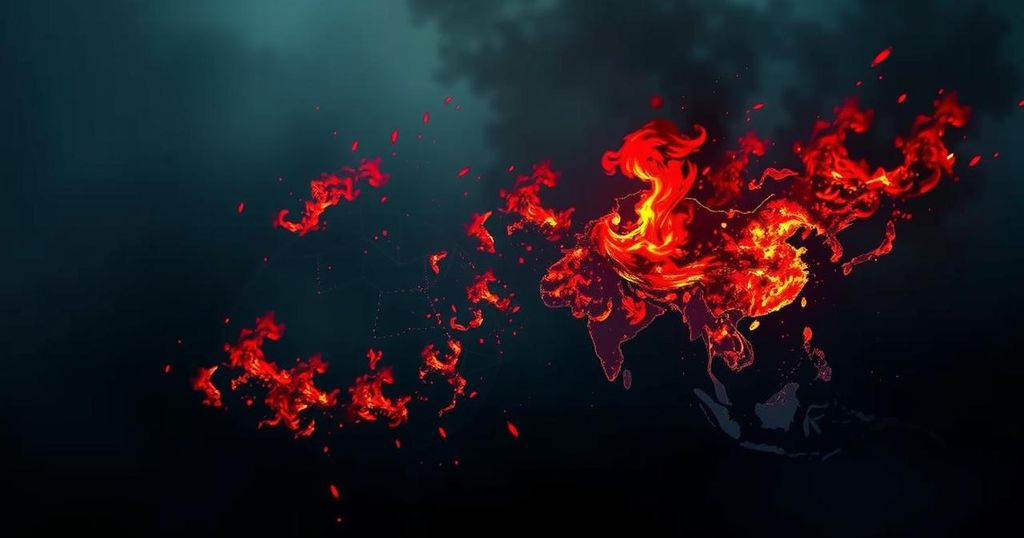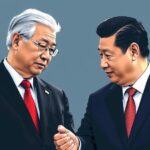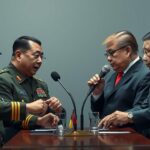Politics
ADAM SIMPSON, ARMS TRADE, ASIA, AUNG SAN SUU KYI, BEIJING, BR, CHINA, DEFENSE, EUROPE, EUROPE/ASIA, GEOPOLITICS, MEXICO, MILITARY COOPERATION, MYANMAR, MYANMAR NATIONAL DEMOCRATIC ALLIANCE ARMY, NORTH AMERICA, RUSSIA, SOUTH CHINA SEA DISPUTE, TERRITORIAL DISPUTES, UKRAINE, UNIVERSITY OF, UNIVERSITY OF ADELAIDE
Nia Simpson
Myanmar Civil War: A Global Crisis Involving Major Powers
Myanmar’s civil war, ignited by the 2021 military coup, is influenced by foreign powers including China and Russia. While local resistance is rising, these international players grapple with their strategic interests amid growing humanitarian crises and public dissent. This situation poses significant challenges for regional stability, necessitating urgent global engagement.
Myanmar is currently engulfed in a civil war that has drawn the attention and involvement of various global players. This tumultuous situation escalated following the military coup of February 2021, which resulted in the ousting of the democratically elected government led by Aung San Suu Kyi. The ensuing chaos has been marked by violent clashes and widespread displacement, leading both international and local stakeholders to actively influence the conflict’s trajectory. Among the prominent foreign actors, China has emerged as a major contributor to the evolving dynamics in Myanmar. Historically, China has supported various ethnic armed groups while maintaining significant economic and military interests in the country. Dr. Adam Simpson from the University of Adelaide highlights the complexity of China’s role, especially as it distances itself from the military junta due to recent changes on the ground. China has provided tactical support to groups such as the Myanmar National Democratic Alliance Army (MNDAA) and the United Wa State Army, linked to Chinese ethnic communities, yet recent military successes of the opposition are prompting Beijing to reconsider its support. Russia, on the other hand, has strengthened ties with the military junta, echoing its own international isolation post-Ukraine invasion. Since 2021, various Russian entities have reportedly supplied over $406 million in military equipment to Myanmar, including advanced MiG-29 jets and helicopters. Such arms have been instrumental in facilitating airstrikes against civilian targets, further exacerbating the humanitarian crisis. The reaffirmation of military cooperation between Russian and Myanmar officials underscores the strategic depth of their alliance amidst domestic upheaval. Both China and Russia, while significantly influential in the conflict, face challenges from global entities such as ASEAN and Western nations who have found themselves marginalised in their responses. ASEAN, struggling to maintain coherence, has attempted to confront the junta’s authority but has achieved minimal results. Their ‘Five Point Consensus’ has proven ineffective, further necessitating deeper support from Western countries to align with democratic forces in Myanmar. Despite the international complexities, local narratives and the resilience of Myanmar’s communities persist amidst calamity. Local artisans, such as sculptors, navigate economic hardship while continuing to create cultural artifacts, exemplifying the enduring spirit of the Myanmar people. For instance, Aung Naing Lin strives to procure marble from territories now held by rebels for creating Buddhist statues; this underscores the personal stakes involved in cultural preservation amid conflict. The resistance movement against the junta has gained traction, with the People’s Defence Forces (PDF) forming an essential part of the opposition against the military’s governance, a stance frequently mischaracterised by official narratives that label them as “terrorists.” In stark contrast, local sentiments paint a picture of resistance and perseverance despite overwhelming odds. Many artisans believe that their craft is essential not only for socio-economic survival but also for fostering hope in the hearts of citizens affected by war. The ramifications of Myanmar’s civil war extend well beyond national borders, prompting neighboring countries like Thailand to prepare for the influx of refugees and illicit activities. The regional instability resulting from this crisis testing the capacities of nations as they navigate varied diplomatic avenues, humanitarian responses, or military considerations in response to the ongoing conflict. In conclusion, the ongoing civil war in Myanmar is a complex issue involving not only local struggles but also significant international implications. As global powers respond, their interests and actions may influence the path toward resolution. The resilience of the Myanmar people against both military and foreign pressures highlights a profound narrative of hope amidst despair, complicating the pursuit of stability in the region. The situation demands urgent global attention to mitigate its consequences and work towards restoring peace in Myanmar.
The civil war erupting in Myanmar has transformed into a multifaceted international crisis following the military coup that removed Aung San Suu Kyi from power. Old alliances have been tested, and foreign powers like China and Russia have become entangled in the conflict, each projecting their influence based on strategic interests. The broader implications of this war extend beyond Myanmar, affecting regional stability and international relations.
The civil war in Myanmar represents a multifaceted crisis deeply rooted in both local and international dynamics. With significant involvement from foreign states, the situation reflects a complex geopolitical landscape that goes beyond traditional conflict narratives. The implications for not only Myanmar but also neighboring countries and global powers underscore the necessity for a nuanced understanding and strategic responses towards achieving peace and stability.
Original Source: evrimagaci.org







Post Comment